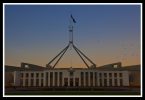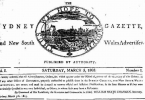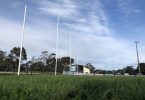Australia’s mental health crisis is at an all-time high, with over 10% of the population accessing some form of subsidised care, according to the Australian Institute of Health and Welfare.
A recent report from the Australian College of General Practitioners found that two in three practitioners reported “psychological issues” as the most common reason patients visited.
The report from the AIHW shows men are less likely to access mental health services, making up only 40 per cent of patients. No data was included regarding non-binary people. Those aged between 25-34 seem to be most likely to access a psychiatric professional of some kind, making up 19 per cent of total patients.
Worryingly, while the elderly have the lowest rate of seeking mental health services, they have the highest rate of prescription drug use. Those over 65 years old make up only 9 per cent of patients receiving some form of psychological service, but they make up 28 per cent of patients receiving subsidised prescriptions.
The next highest age group is those aged 55-64, comprising 11 per cent of total patients.
Not only are more Australians taking prescription medication for mental health care, many of them aren’t receiving any services and are relying on the drug alone.
Antidepressants are by far the most common drug type, with almost 5 million people using a regular prescription. Antidepressants make up over 60% of mental health related prescriptions.
To compare, more people use a Medicare-subsidised antidepressant than receive any kind of mental health service. This doesn’t include those who receive prescriptions not covered by Medicare or who do not have a mental health care plan.
Anxiolytics, medications specifically to treat anxiety, are also popular.
This reliance on drug-based intervention points to a drastic discrepancy in cost between mental health services and prescription medication. The Australian Psychological Society recommended private psychologists charge $251 for a 45-60 minute consultation, while the average cost of generic Sertraline (a common antidepressant) comes to around $20.
The data shows an increasing reliance on chemical intervention, which psychologists have continually insisted is more effective when partnered with ongoing psychotherapy. As the below graph shows, Australia has formed a co-dependent relationship with antidepressant medications since 1992.
We know that chemical intervention isn’t a permanent solution, but some of the most vulnerable groups and people in Australia currently rely on it.
These charts above show that Australia needs to start taking mental health treatment seriously, and make it more accessible to those in rural and regional areas, the elderly, and those without the money to pay $250 a session.
More information is available at the AIHW website.
Featured Image: Joshua Coleman





